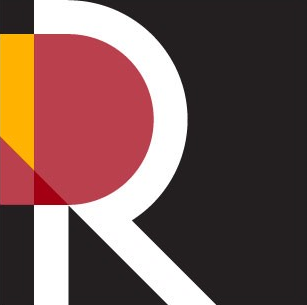Policy Change by the Roosevelt Institute at UCR
By Marte Nooijen & Annick Wijnstra
On the 21st of April this year, Middelburg will welcome the five laureates of the Four Freedoms. The most prominent laureate is Angela Merkel, the Chancellor of Germany. She is awarded the International Four Freedoms for her role as a moral leader in the current humanitarian refugee crisis, but also for her contribution to the negotiation processes concerning Ukraine as well as the financial crisis in Greece. The four other laureates will receive an award for each of the four freedoms.
Here at University College Roosevelt, we all enjoy these freedoms: The freedom of speech in our classes and amongst each other, the freedom of worship on our campus locations and amongst friends. But even at a university like ours, not all of us have the freedom from want, or the freedom from fear. Some of us are struggling to pay our tuition fees, as well as pay for food. Others do not enjoy the freedom from fear, whether it is a fear of discrimination on the streets, or fear for family members in another part of the world.
The laureates of the Four Freedom are an example to us at the Roosevelt Network. We are a young, international network of thinkers and doers, which focusses on reimagining and rewriting the rules of our societies. The initiative is originally American and last semester, the very first international chapter was founded here, at University College Roosevelt. The entire network consists of 120 college campuses, which partner up with policy makers and provide them with clear, principled ideas, and visionary, actionable plans. We use policy as a tool to establish the changes we want to see. In the previous semester, members of our chapter have worked on policies ranging from drone legislation, to shortening our workdays, net neutrality, and policy on the treatment of LGBTQ elderly in Zeeland. Furthermore, the network has established contact with the municipality, and we are currently working together to find ways to implement our policies.
Lately, too many young people have given up using their voice to shape our future. Not us. We write and enact ideas that expand access to power and prosperity. We use knowledge and research experience which we gain at UCR to create a lasting change. In this way, we want to offer you, as a student, a lifelong intellectual home, and the opportunity to realise sustainable change, for now and later. As an alumnus of the network you can, together with other members of the network, continue to create a future you want to live in.
Our ideas are principled, and our plans for the future are visionary. However, we do not intend to get stuck in dreaming about ideals. The Roosevelt Network is aiming for change, and therefore we use policy as a tool which will allow you to convert your dreams and research into actionable plans that you can introduce to the world.
Now, how does this work in practice? The network meets every Wednesday, and biweekly on Thursday. In the Wednesday meetings, which take place from 16.00 to 18.00, we meet up with all of those who are writing and working on own policy. We get together, discuss ideas, do research, and write. These meetings are great if you are not exactly sure what it is that you are interested in, or what your policy area will be. Our policy areas include healthcare, defence and diplomacy, sustainable energy and environment, equal justice, education, and economic development. In addition to this, we as the board, will share our progress with you. This might range from new connections we made with policy makers to exciting announcements about upcoming lectures or updates on ongoing projects. However, Wednesday is mainly your event. Our agenda contains the things that you want to work on. Every policy issue that is discussed is there because you brought it with you. We are here to facilitate your voice being heard by policy actors, ranging from journalists, to municipal workers, from mayors to corporate leaders.
During the meetings on Thursday, our focus will shift every time. Whereas one time we might have a lecture, another time we might have a discussion on a pressing policy issue. We will, for example, get engaged with the other chapters in the United States to speak about the presidential elections, or any other topic. During these events, we will also host trainings on how to do policy research, as well as how to start creating policy change and how to start campaigning for your idea.
Do you want to know more, visit the website of the Roosevelt Institute at http://rooseveltinstitute.org/ and like our Facebook page: https://www.facebook.com/Roosevelt-Institute-at-UCR-206823102990971/
We believe that the students of UCR have something substantial to contribute to this world, and we want to give them the tools and resources to rewrite the rules of our society. It is our responsibility to help shape the future, because, to end with the famous work of Franklin D. Roosevelt himself, “Let us not forget that government is ourselves and not an alien power over us. The ultimate rulers of our democracy are not a president and senators and congressmen and government officials, but the voters of this country.”
Marte Nooijen, Class of 2017, is a Political Science, Law and Anthropology major from Bakel, the Netherlands.
Annick Wijnstra, Class of 2017, is a Literature and History major from the Netherlands.

